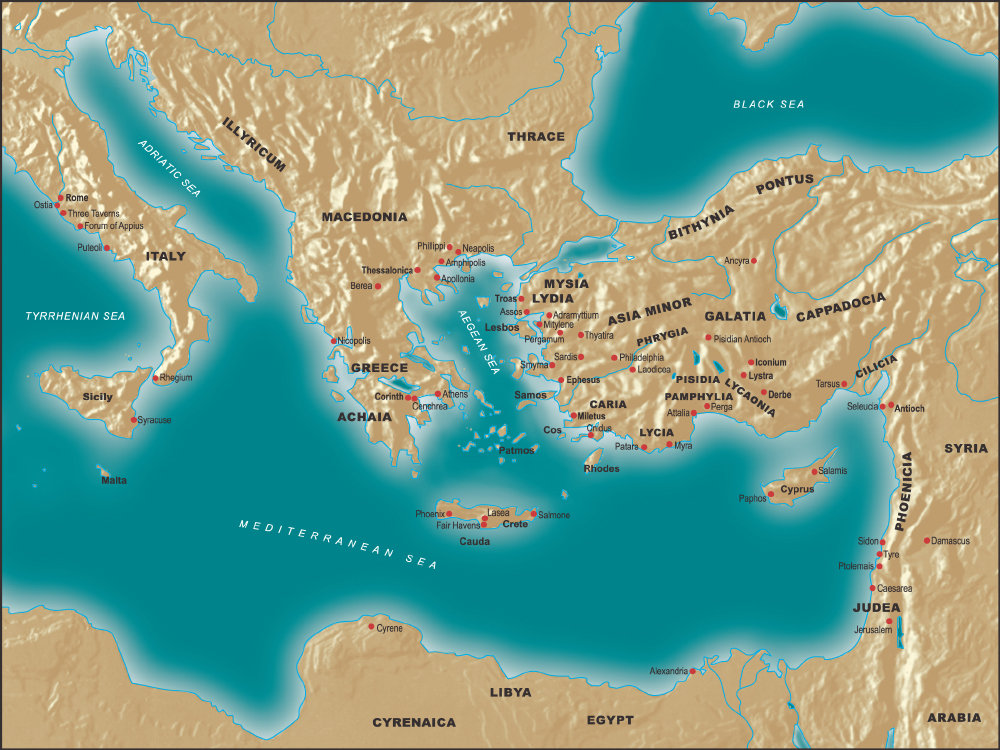2 Timothy
by S. M. Baugh
■ AUTHOR: The apostle Paul.
■ DATE: Perhaps A.D. 66–67 (during Paul’s second Roman imprisonment?).
■ VENUES: Paul is probably in Rome writing to Timothy in Asia Minor.
■ OCCASION:
• To convey his last thoughts and exhortations to Timothy in the face of probable martyrdom (4:6–8).
• To warn against certain false teachers and apostate brothers.
• To further encourage Timothy in the conduct of his ministry.
Second Timothy is the second of the “Pastoral Letters.” For a general introduction on the authorship of these letters, see the comments at the beginning of 1 Timothy.
The Occasion for Second Timothy
In the introduction to 1 Timothy, I sketched out a probable scenario for the events in Paul’s life and the background of the three Pastoral Letters. In that scenario, 2 Timothy comes as the last letter written by Paul. He was in Rome again, imprisoned and awaiting trial the second time (see 4:12–20). Since he had left some belongings at Troas, it seems that Paul had been arrested there or in some other city in Asia Minor before being sent on to Rome for trial. There is a hint in 1 Clement 5.7 (ca. A.D. 95; cf. the later Muratorian Canon) that Paul actually made it to the “limit of the west,” that is, to Spain, as he had hoped (Rom. 15:24, 28). If true, he would have been released from this second Roman imprisonment, unless he had already gone to Spain between his two Roman imprisonments. The massive turbulence caused by the Jewish revolt and the concurrent Roman coups and brief civil war right around this time makes this conceivable if not certain. Nero’s assassination in June of 68 inaugurated the “year of the four emperors”: Galba (June 68 to January 69); Otho (January to March 69); Vitellius (April to December 69); and finally, Vespasian (December 69 to 79).
Paul is writing in anticipation of his condemnation and execution at Rome (4:6). He writes to Timothy to alert him of his circumstances (2:9), to warn him of certain future dangers to the church and her doctrine (e.g., 4:3–4), and to ask Timothy and Mark to come to him and bring along certain items from Troas (4:9–13). Of all Paul’s letters, this one is filled with poignant reflections by the apostle on his life’s conclusion and the awareness that he must turn his ministry over to others.

MEDITERRANEAN WORLD
